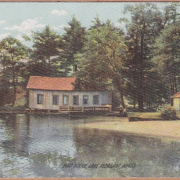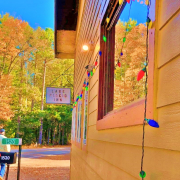Can a Family Cabin Agreement Help My Family To Stay Out Of Court?
We think so.
Imagine if a family member no longer wants to be a part-owner of the family cabin. He wants out. You do not want to pay him his asking price. A falling out occurs. Other regretful actions transpire.
If your family doesn’t have some mechanism in place to deal with this impasse, a court proceeding may be the only option. However, there are sound reasons why you should try to avoid using litigation to settle your cabin related disputes.
Why should you avoid a court solution?
While a court process may take several months, the impasse will certainly be resolved. However, family relationships chill dramatically after a lawsuit is filed, and without question, attorney fees and court costs are likely to be substantial.
In Wisconsin, there is another problem. An action of this nature will appear on the internet via the Wisconsin Circuit Court Access webpage. This means that the world will know about your family cabin fracas.
You might also be facing a “partition action” which is a legal atomic bomb. A partition of property is voluntarily if all the real estate owners agree to the division of property. However, if they don’t, after one party files a partition action, a judge can order a division or “partition” of the property. A partition action can be started unilaterally by any family member who owns an interest in the cabin.
There are two types of partition that a court may consider. A “partition in kind” severs the individual interest of the joint owners. The owners end up each controlling an individual portion of the property. The second type of partition is a “partition by sale” and is more commonly used. A partition by sale is accomplished by selling the entire property and dividing the proceeds among the owners.
How you might avoid a court solution?
Be proactive. Create a cabin trust or limited liability company. A trust or limited liability company (LLC) can govern how the cabin is to be owned and used.
A primary purpose of a cabin trust or LLC agreement is to provide a procedure that kicks in when one owner wants to sell his interest. That procedure typically includes a determination of the fair market value for the seller’s interest. The agreement often includes a provision that requires that the seller sell his share at a discount. Example: Brother’s 50% share is valued at $100,000. Sister owns the remaining 50% Share and is the buyer. Under the agreement Brother is selling it to Sister for $60,000 because of a 40% discount on sales out of the trust or LLC. The discount makes sense because it provides the financial incentive for the remaining owners to buy you out the seller and chills the seller’s temptation to jump out of the cabin for the cash.
We also see families agreeing to payments over time. Often the payments are spread out over several years so the sale wouldn’t strain the remaining owners’ finances forcing a sale of the cabin. Depending on the family involved, this can be payments made at interest over terms lasting 15 years or more.
The trust and the LLC can also help you avoid the partition action dilemma. Under Wisconsin law, a trust or LLC is a legal entity. This means, in effect, that the LLC is a legal person. A trust or LLC can sue and be sued, own property, enter into contracts, and do many of the things that an individual human being can do. Because a trust or LLC is a legal person, the property it owns is the property of the trust or LLC. Because the beneficiaries or members are not co-owners of the real estate, any partition action started would have to be dismissed.
As parties to the agreement, the buyer and seller both know the plan before the transaction occurs. An agreement can help family members keep their perspective, possibly avoiding a dispute before it begins. If the parties do disagree with the terms of the agreement, an arbitration clause (requiring a private dispute resolution process and sometimes having the loser pay the fees) is used to keep things private and civil.
Not all agreements are created the same.
Avoiding costly litigation is just one of the benefits of using a cabin trust or LLC. A proper agreement can, among other things, set a plan for scheduling use, sharing expenses, limits on decorating, rentals, and other uses for the cabin.
These agreements tend to follow a pattern but, frankly, no two are alike. Each family has its own set of values and objectives to consider. It takes time and expertise to develop them correctly. A family should not hesitate to consult with a professional advisor that has experience in this area. A professional advisor can help the family develop an agreement that meets the family’s needs and helps maintain harmony so that the cabin can be enjoyed for many years.
Please take our Cabin Law survey:
How do you own your family cabin/ vacation home?








Leave a Reply
Want to join the discussion?Feel free to contribute!